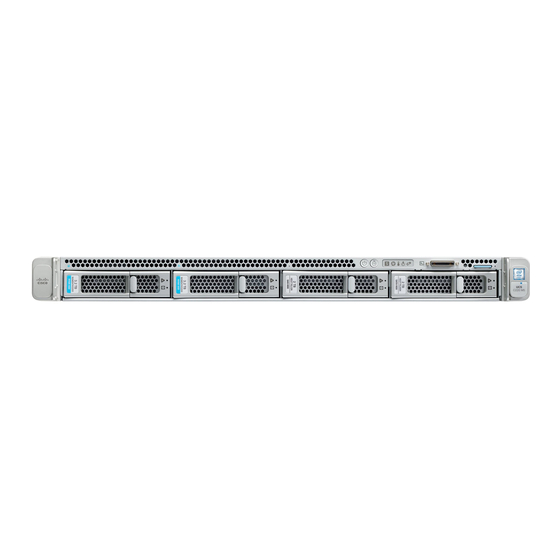Cisco Expressway CE1200 Installation Manual - Page 18
Browse online or download pdf Installation Manual for Server Cisco Expressway CE1200. Cisco Expressway CE1200 23 pages.
Also for Cisco Expressway CE1200: Appliance Installation Manual (42 pages)

Cisco Expressway CE1200 Appliance Installation Guide
Access the Expressway User Interface
Access the Expressway User Interface
This section describes how to access the Expressway web and CLI user interfaces. The interfaces are enabled
through the Install Wizard.
Using the Web UI
To log into the web user interface:
1.
Open a browser window and in the address line type one of the following:
IP address of the Cisco Expressway (for example, https://10.0.0.1). Enter the address as HTTPS.
—
FQDN of the Cisco Expressway (for example, https://mydomain.example.com).
—
2.
In the Login page, select Administrator login.
3.
Log in with username admin and your system password.
4.
The Expressway Overview page is displayed.
More information
Detailed information about configuring and managing Expressway, including each page in the interface, is provided in
the Expressway online help and in the
Using the CLI
The command line interface is available over SSH and through the serial port by default:
1.
Start an SSH session.
2.
Enter the IP address or FQDN of the Cisco Expressway.
3.
Log in with username admin and your system password.
4.
A welcome message is displayed.
More information
The CLI commands for Expressway are detailed in the Cisco Expressway Administrator Guide.
Next Steps
From the Expressway user interface, follow the steps described in the
Deployment Guide
guide for details before you continue:
1.
The first time you log in, the Service Setup Wizard launches. The wizard is used to select specific licensing
requirements for a deployment, and if necessary to change the default Expressway-C configuration to an
Expressway-E.
2.
After the Service Setup Wizard, you go on to configure Expressway:
a.
System configuration, including the System Name, DNS settings, server certificate, NTP servers, SIP
domains).
b.
Routing configuration, including transforms, search rules, and zones.
c.
Endpoint registration.
d.
System verification checks.
e.
Maintenance and optional configuration tasks.
Cisco Expressway Administrator
to set up the Expressway. The process is briefly summarized here, but please refer to the other
Guide.
Cisco Expressway Basic Configuration
18
